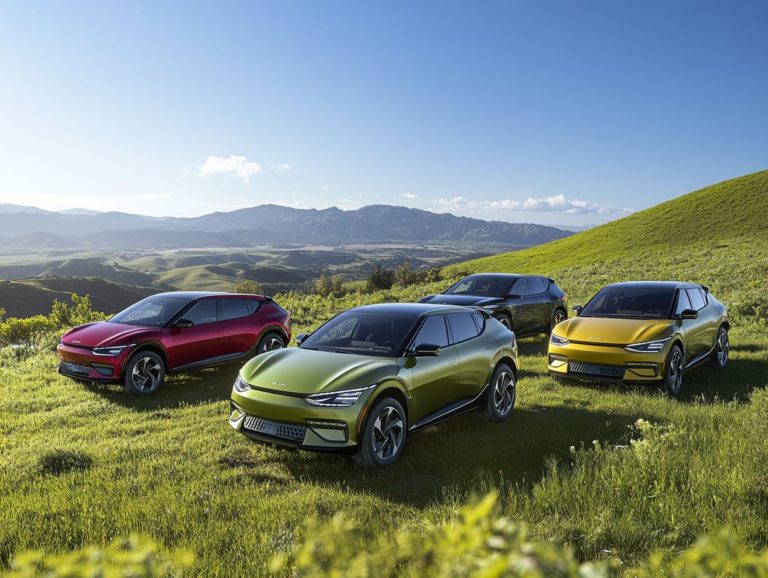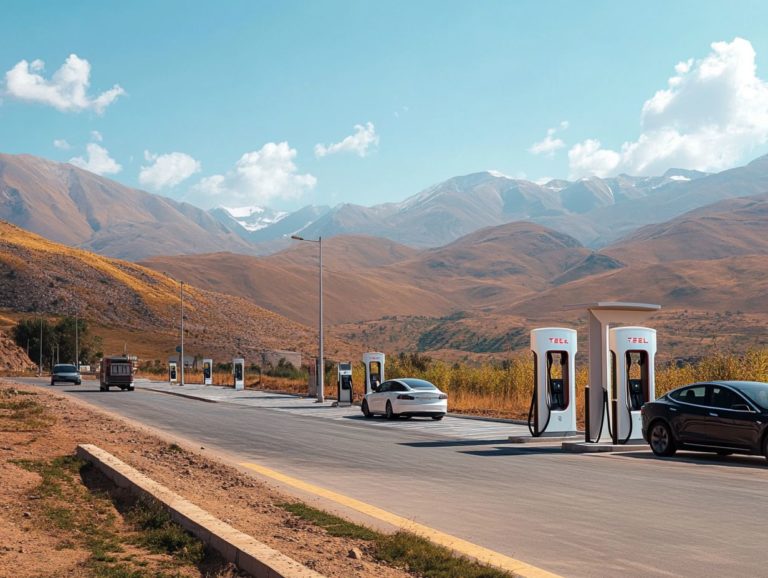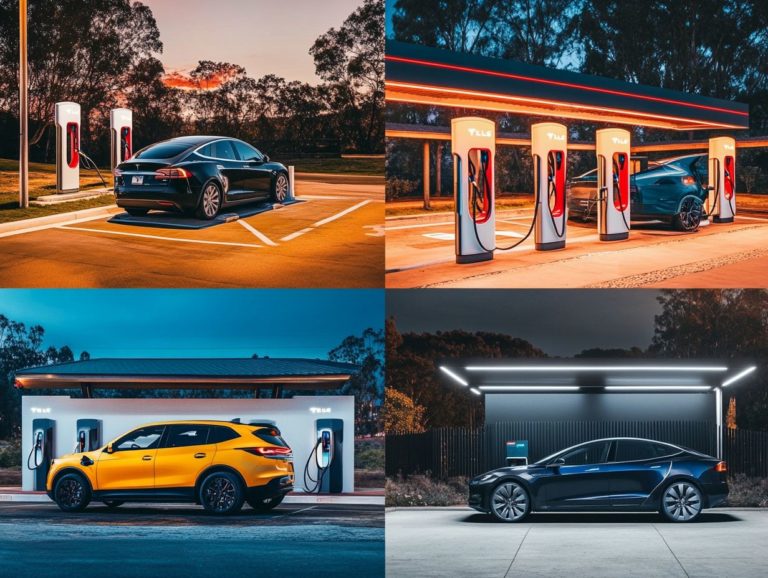Is an Electric Vehicle Right for Your Lifestyle?
Electric vehicles (EVs) are revolutionizing the automotive landscape, presenting a sustainable alternative to conventional gas-powered cars.
As you contemplate making the switch, it’s essential to explore the many benefits of owning an EV, from minimizing your carbon footprint to unlocking significant cost savings.
Before taking the plunge, consider key factors like your driving habits and the accessibility of charging infrastructure. This guide will help you discover if an electric vehicle is your next thrilling ride!
Contents
Key Takeaways:
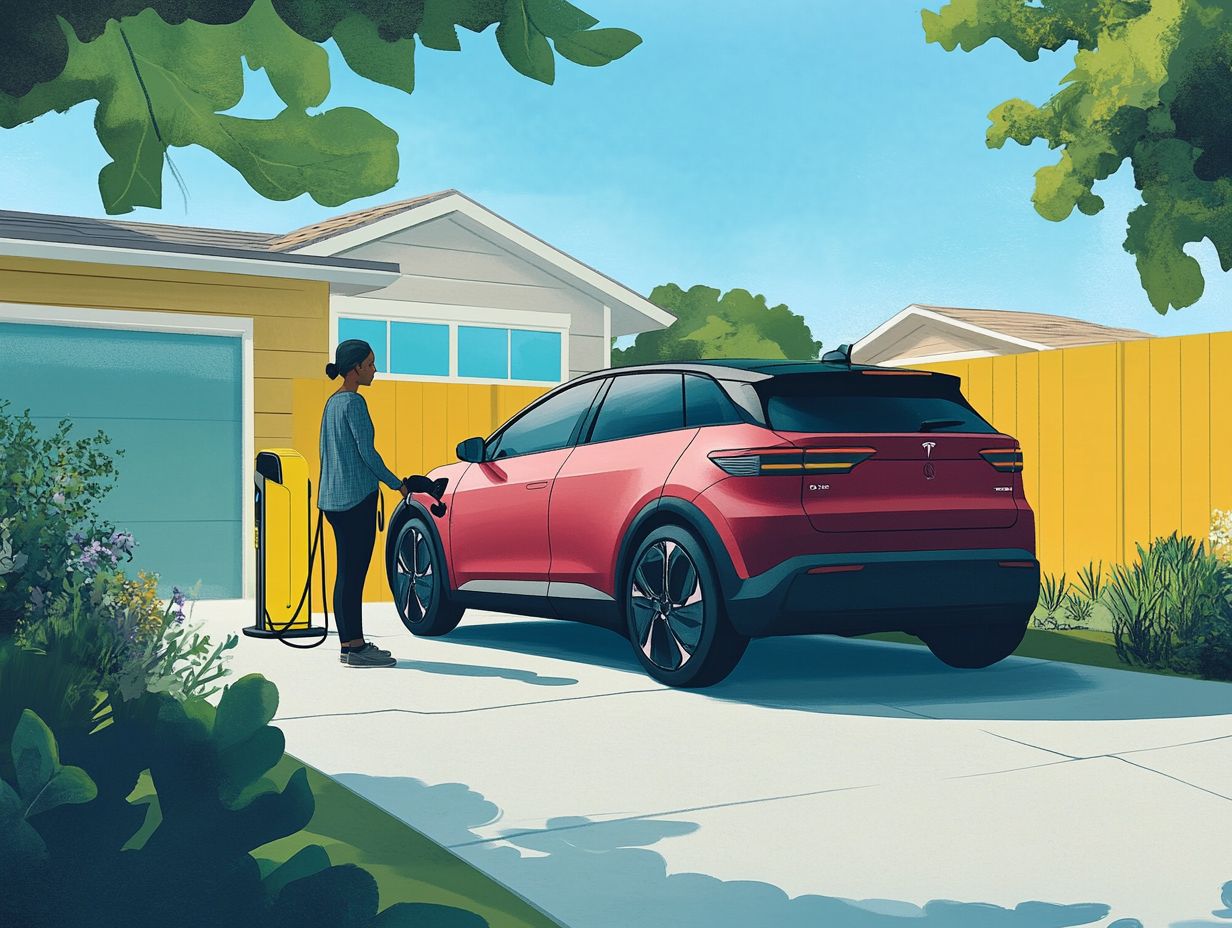
- Switching to an electric vehicle can greatly benefit the environment, your wallet, and your driving experience.
- Before purchasing an electric vehicle, consider your driving habits, access to charging stations, and the overall cost of ownership.
- To smoothly transition to an electric vehicle, be prepared for charging and maintenance needs, and embrace the unique driving experience it offers.
Start your journey towards a greener future today!
What are Electric Vehicles?
Electric Vehicles (EVs) represent cutting-edge automotive technologies. They encompass various categories such as Battery Electric Vehicles (BEVs), Plug-in Hybrid Electric Vehicles (PHEVs), and traditional Hybrid Electric Vehicles (HEVs).
Leading brands like Tesla, Ford, and Chevrolet are at the forefront of this electric revolution, providing you with an array of options designed to enhance fuel economy while significantly reducing emissions.
In recent years, the adoption of EVs has soared due to technological advancements and increasing government incentives that promote cleaner energy alternatives. These vehicles signify a remarkable shift in mobility, harnessing electric power to boost efficiency and minimize the carbon footprint typically associated with conventional gasoline engines.
BEVs, which run solely on electric batteries, produce zero tailpipe emissions, making them an ideal choice for environmentally conscious consumers. PHEVs blend electric and gasoline power, granting you the flexibility for longer journeys without the worry of running out of battery power.
The impact of EVs goes beyond personal choice; they play a crucial role in advancing renewable energy sources by seamlessly integrating with solar and wind power. This aligns perfectly with global sustainability goals.
Enhanced fuel economy translates to substantial savings for you as a driver and reduces dependence on fossil fuels, contributing to a healthier planet.
Benefits of Owning an Electric Vehicle
Owning an electric vehicle (EV) offers a wealth of benefits that can elevate your driving experience. From cost savings and reduced maintenance expenses to impressive emissions advantages, EVs cater to the modern driver s needs.
You’ll enjoy lower fuel costs by embracing renewable energy sources, providing a cleaner, eco-friendly alternative. Advancements in driving range and attractive government incentives make the shift to electric vehicles enticing for those who value both practicality and sustainability.
Environmental Impact
The environmental impact of electric vehicles (EVs) is significant, offering considerable emissions advantages compared to traditional gasoline-powered vehicles. By greatly reducing greenhouse gas emissions and air pollutants, EVs contribute to a cleaner atmosphere.
When you choose renewable energy sources like solar and wind for charging, you improve air quality and reduce your carbon footprint. Join the growing number of consumers embracing electric vehicles today, and together we can bolster the global shift toward clean energy solutions and sustainable transportation.
This transformation helps lessen our dependence on fossil fuels and protects terrestrial and marine ecosystems from threats posed by oil spills and other environmental hazards. Your choices in transportation can make a big difference in fostering an eco-friendly economy, encouraging innovation in battery technology, and developing charging infrastructure powered by renewable energy.
This blend of consumer demand and sustainable practices highlights the immense potential of electric vehicles to create a cleaner, more resilient planet for future generations. It emphasizes the urgent need for collective action as we confront the challenges of climate change together.
Cost Savings
One of the most compelling reasons to consider electric vehicles (EVs) is the cost savings they offer, especially regarding fuel economy and reduced fuel costs. By utilizing electricity as a power source, you enjoy lower operating expenses compared to conventional vehicles, which often struggle with fluctuating fuel prices.
EVs typically come with lower maintenance costs due to fewer moving parts, making them even more economically appealing over time. Studies reveal that charging an EV can cost about half as much as fueling a gasoline car.
With fewer oil changes, brake replacements, and less complex engine repairs, the long-term savings on maintenance can be substantial. Many EV models also qualify for government incentives, significantly reducing the initial purchase price.
Transitioning from conventional cars to electric alternatives benefits the environment and represents a smart financial choice that can lead to greater affordability in the long run.
Convenience and Performance
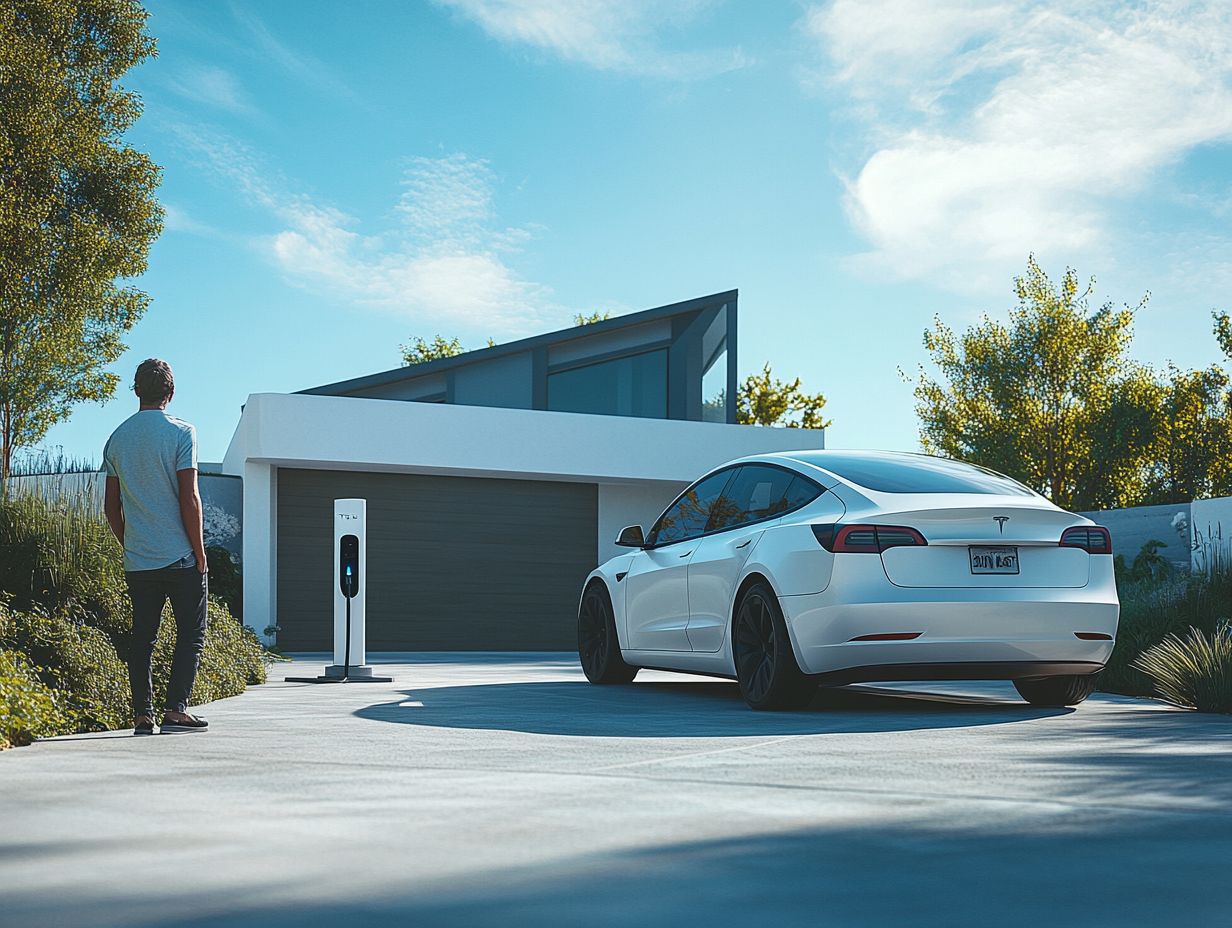
Electric vehicles (EVs) elevate your driving experience with their smooth acceleration and whisper-quiet operation, providing great convenience through an expanding charging infrastructure and impressive driving range. With charging stations becoming more accessible than ever, you can embark on uninterrupted journeys powered by renewable energy.
Thanks to advancements in battery technology, the driving range of EVs is extending, making them increasingly practical for various lifestyles. The rise of fast-charging networks allows you to recharge your vehicle in just minutes, while innovative battery designs cut down charge times and enhance energy efficiency.
The latest breakthroughs in solid-state batteries offer even greater longevity and safety, boosting your confidence in electric driving. As EV technology progresses, features like regenerative braking enhance energy conservation and deliver a more engaging driving experience.
The seamless blend of advanced engineering and user-friendly infrastructure positions electric vehicles as the premier choice for those seeking both performance and sustainability.
Discover how switching to an electric vehicle can change your life today!
Factors to Consider Before Purchasing an Electric Vehicle
Before you dive into the world of electric vehicles (EVs), it’s essential to weigh several key factors that can shape your buying experience. Consider the different types of vehicles available, the accessibility of charging stations, and the overall cost of ownership.
Grasping the nuances between various electric vehicle types, such as Battery Electric Vehicles (BEVs) and Plug-in Hybrid Electric Vehicles (PHEVs), can refine your decision-making process. It’s important to check how many charging stations are nearby for a smooth switch to electric vehicles.
Driving Habits and Needs
Understanding your driving habits and needs is essential when considering an electric vehicle (EV). This insight will guide you in selecting the best options that align with your lifestyle.
Factors like your daily commuting distances, the importance of driving range, and how often you embark on long trips significantly influence your choice. For example, if you have a longer commute, you might want to prioritize models with extended driving ranges.
If your journeys are primarily through city streets, a smaller, more compact EV could be perfectly adequate. Your personal preferences whether it s advanced technology features or specific performance traits also play a crucial role in your selection.
By thoroughly assessing these driving habits, you will find the ideal model and enhance your overall satisfaction with the electric vehicle experience. This way, your EV will fit perfectly into your daily life and those spontaneous road trips!
Availability of Charging Stations
The availability of charging stations is a crucial element to consider when purchasing an electric vehicle (EV). An expanding charging infrastructure is essential for your ability to recharge and maintain your vehicle efficiently.
Check how many charging stations are local to you to enhance your overall ownership experience. This accessibility alleviates range anxiety and makes the transition to electric vehicles more attractive.
Recent developments highlight the rapid growth of charging networks, with more stations emerging in urban areas, along highways, and within commercial centers. As these networks expand, they enhance the convenience of your daily commute and long-distance travel, enabling you to journey freely.
Government incentives and collaborations with private companies are accelerating the installation of fast-charging options. This enriches the benefits of embracing electric vehicle use.
Cost of Ownership
When considering the purchase of an electric vehicle (EV), grasping the total cost of ownership is crucial. This includes not just the sticker price, but ongoing expenses like maintenance and fuel costs.
Electric vehicles usually require fewer maintenance interventions than their gasoline-powered counterparts, leading to significant long-term savings that help balance your initial investment.
Assessing fuel costs in relation to electricity rates versus gasoline prices will provide vital insights into the financial implications of owning an EV. You could score amazing incentives like tax credits and rebates when you choose an electric vehicle!
As you consider factors such as battery lifespan and potential replacement costs, these elements will also play a role in your understanding of ownership expenses.
Plus, EVs typically have a reduced environmental impact, aligning with sustainability goals and appealing to those interested in making eco-friendly choices.
All these factors combined provide a comprehensive perspective that can greatly influence your decision-making process.
Explore your options today and join the electric vehicle revolution!
How to Make the Transition to an Electric Vehicle
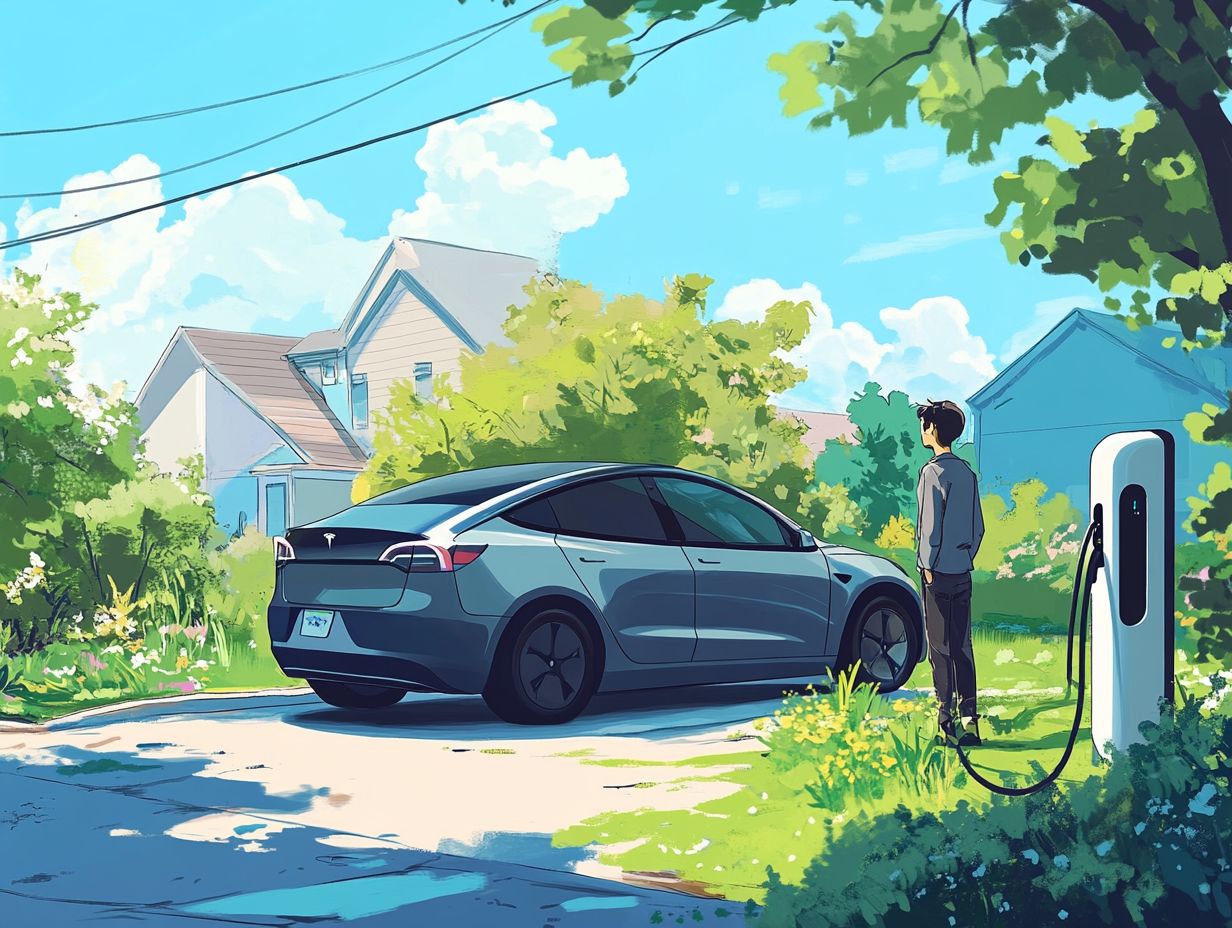
Transitioning to an electric vehicle (EV) requires planning. Evaluate key factors like charging stations, battery life, and maintenance costs for a smooth switch from gas cars.
By grasping the unique aspects of electric vehicles, including their distinct driving experience and dependence on renewable energy, you can equip yourself for this thrilling journey into sustainable mobility.
Switching to an EV means some changes, such as modifying maintenance routines and developing charging habits that align with the needs of your new vehicle.
Preparing for Charging and Maintenance
Preparing for charging and maintenance is crucial. These elements affect your overall experience.
As you embrace this innovative mode of transportation, it’s key to set up good charging habits. This allows you to enjoy seamless daily use without the anxiety of running out of power. Consider investing in a home charging station to maximize convenience. Additionally, familiarizing yourself with the battery management system will help enhance the life of your EV’s battery.
Additionally, budgeting for routine maintenance costs related to both the electrical and mechanical parts will support the smooth operation of your vehicle, allowing you to avoid unexpected expenses down the line.
Adjusting to a Different Driving Experience
Adjusting to a different driving experience is essential when owning an electric vehicle (EV). This transition introduces unique features that set it apart from traditional vehicles.
From the instant torque and smooth acceleration to the serene quietness of operation, EVs offer a distinctive driving experience that not only elevates your journey but also enhances energy security by reducing reliance on fossil fuels. Embracing these new characteristics will deepen your appreciation for electric vehicles and their pivotal role in fostering a more sustainable future.
The sensations you ll encounter while driving an electric vehicle are transformative; they glide effortlessly over the pavement, delivering an almost futuristic sensation. Unlike their internal combustion engine counterparts, EVs come equipped with advanced regenerative braking systems that recover energy while slowing down, making your drive more efficient.
This not only makes for a more engaging driving experience but also contributes to the broader objective of shrinking carbon footprints. As you adapt to these features, you become part of a larger movement toward energy independence, where sustainability is woven into every journey.
By recognizing the synergy between driving enjoyment and environmental responsibility, you can fully embrace the future of transportation.
Frequently Asked Questions
Is an Electric Vehicle Right for Your Lifestyle?
Thinking about an electric vehicle? Let s see if it fits your lifestyle.
What is an electric vehicle?
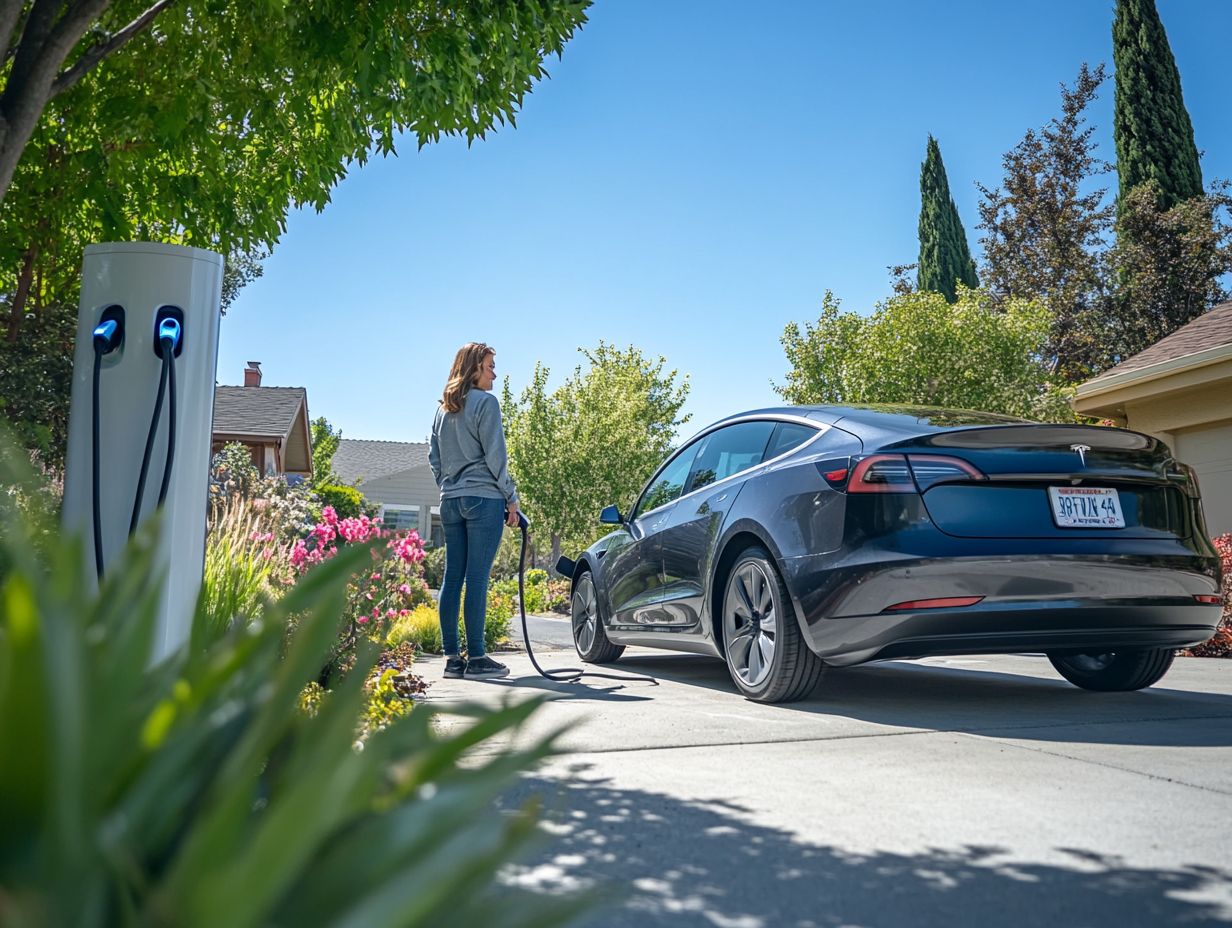
An electric vehicle, or EV, runs on electricity rather than gasoline or diesel. It uses a rechargeable battery to power the motor, producing zero emissions.
What are the benefits of owning an electric vehicle?
Owning an electric vehicle can bring several benefits, such as lower fuel and maintenance costs, environmental friendliness, and a quieter driving experience.
How do I charge an electric vehicle?
You can charge an electric vehicle at home with a standard outlet or install a charging station, or you can use public charging stations while on the go.
Is my daily commute suitable for an electric vehicle?
If your daily commute is within the range of an electric vehicle, it can be a great fit for your lifestyle. Most modern EVs can travel over 200 miles on a single charge.
Are there any government incentives for purchasing an electric vehicle?
Yes! Many governments offer exciting incentives for buying an electric vehicle. These can include tax credits and rebates.
Check what incentives are available in your area. You could save a significant amount on your purchase!

